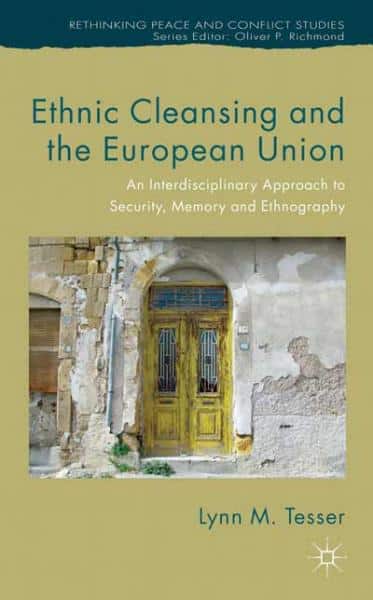
Lynn Tesser
Associate Professor of International Relations, Command and Staff College, Marine Corps University
When did you first develop an interest in Slavic, East European and Eurasian Studies?
It goes back to a study abroad program in London in 1988. A travel company independent of the program offered an excursion to the Soviet Union over the Christmas/New Years holiday. A week in the USSR was the oddest experience I’d ever had. Even with long meals and scheduled sightseeing, the surprises kept coming – and learned only on the flight home that many in our tour group went mainly to deliver humanitarian supplies to Jews living there.
Life took some twists and turns before focusing on the region in graduate school beginning with a seminar on East European Politics from Stephen Holmes when he was still at the University of Chicago. Holmes had been involved in the constitution writing process which appealed to someone like myself with a political theory background and a pragmatic bent. After that class I was hooked and began learning Polish intensively the following summer and then during the next two years of graduate school. Still, it was hard to converse in Polish even when arriving in September 1999 to start dissertation field research based in Poznan. Some people laughed at how I spoke. I like to think it was because they were unaccustomed to hearing accented Polish.
How have your interests changed since then?
My interests went from a general curiosity about the former socialist lands to developing a dissertation and then book topic. The overall idea came from a newspaper article describing the anxiety of some Poles in Poland’s lake district towards the summertime influx of German tourists. Like much of postwar Poland, the lake district had been part of Germany and witnessed the flight, expulsion or transfer of most Germans at the end of and after WWII. These territorial anxieties brought to mind a new question: how would border-effacing EU enlargement impact areas marked by extreme ethnic separation (i.e.expulsions, flight, population expulsions and/or transfers increasingly termed ‘ethnic cleansing’)? Poland witnessed much debate over Germans’ ability to acquire land and property in the former German areas during EU accession negotiations and periodically thereafter. Other countries also witnessed debates over property rights when EU expansion introduced the likelihood of allowing formerly expelled or departed minorities and their co-ethnics the ability to freely acquire land and property.
While my dissertation focused on East-Central Europe, subsequent teaching positions at universities in Bosnia-Herzegovina in 2008-10 and Cyprus in 2011-12 allowed me to develop the project into a broader comparative study. My interests thus changed in terms of a geographical broadening and incorporation of areas with more recent experience of ethnic cleansing into the analysis. Another change came during several months of library research in the U.S. to understand the history of population exchanges and transfers, learning to my amazement that Western powers often endorsed minority removal for conflict resolution (explicitly or implicitly) in the first half of the 20th century, though mostly in an officially voluntary capacity and following on war-related expulsions. My developing book project would thus also consider how earlier Western powers’ sanctioning of forced migration created the context for demographic anxieties occurring even decades later. A third change came from learning how little people in Poland, Bosnia,and elsewhere know about forced migration occurring outside their home countries, and after having spent two years working at several think tanks prior to moving to the Balkans. I try to adapt conventional political science methodologies to produce work that can be understood and appreciated by broader audiences.
What is your current research/work project?
After just finishing a think tank report taking longer than expected, I’m back to working on the paper to be presented at the 2015 ASEEES conference on the emergence and development of norms regarding territorialized ethnicity. I’ve organized a panel on ‘Ethnic Cleansing and the Complicity of International Diplomacy’ mainly featuring historians whose work will hopefully inspire more comparative analysis of ethnic cleansing, the linkages between various instances, and their after-effects. My next book project will be a bit broader: on the nation-state and nation-state based international system. Recent developments in the Middle East and the relative ease of Euro-Atlantic powers’ intervention into failing states and/or states accused of substantial human rights abuses suggests a move away from the nation-state as the foundational unit of the international system. I’d like to explore the move and also think about alternatives.
What do you value about your ASEEES membership?
It is great to be linked to many scholars with interests in a particular region who care about understanding its uniqueness and the particular historical context in which events occur. This runs at odds with the present-day tendencies of political science with its methodological focus and incentives to construct generalizable theory, though complimentary to the needs to think tanks, NGOs, militaries and others needing to know about regional and local specificity.
Besides your professional work, what other interests and/or hobbies do you enjoy?
Outdoor exercise and living in/traveling to new places are at the top of my list. Besides offering relaxation and new ways of looking at the world, they often enable me to resolve challenges in my research and writing and to come up with new ideas.
